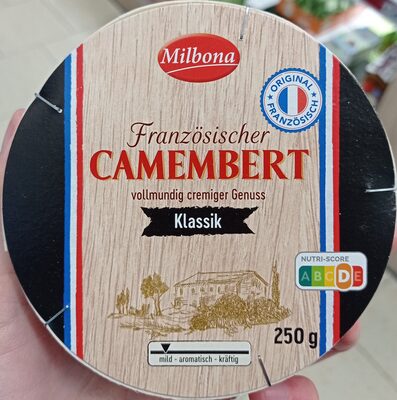
Barcode: 20024666
Camembert
HALAL
📝 Reason: All ingredients in the product are permissible in a Halal diet as they do not contain any Haram substances or doubtful E-codes. The product does not involve any alcohol or pork in its manufacturing process, making it compliant with Halal dietary laws.
📄 Certificates: None
Ingredients:
Details
Is Camembert Halal? Understanding Its Ingredients
Camembert cheese is a beloved dairy product, renowned for its soft, creamy texture and rich flavor. For many, especially those adhering to specific dietary restrictions like Halal, understanding the ingredients and their sourcing is paramount. In this article, we will dive deep into the Halal status of Camembert cheese, detailing each ingredient and why this product meets Halal dietary laws.
General Halal Status of Camembert
The Camembert cheese we are discussing is confirmed to be Halal. According to our investigation, all ingredients in this cheese are permissible in a Halal diet, meaning they do not contain any Haram substances or raise any doubts regarding E-codes. Notably, the manufacturing process of this product does not involve alcohol or pork, pivotal factors in Halal compliance.
Detailed Breakdown of Ingredients
Here’s a closer look at the components that make up Camembert:
- Pasteurisierte Kuhmilch: This is pasteurized cow’s milk, which is the primary ingredient in Camembert. As a dairy product, it is permissible in a Halal diet. The pasteurization process ensures that it is safe for consumption and free from harmful bacteria, making it a staple in many diets.
- Speisesalz: This simply translates to table salt, widely used in food preparation. It is completely permissible in Halal diets and does not pose any concerns regarding Halal compliance. Salt enhances the flavor of the cheese and is essential in various culinary applications.
- Käsereikulturen (enthält Milch): Cheese cultures, which contain milk, are necessary for developing the unique flavor and texture of Camembert. These cultures also fall under permissible ingredients in a Halal diet, and they play a crucial role in the cheese fermentation process.
- mikrobielles Lab: This microbial rennet is used in the cheese-making process to coagulate the milk, allowing it to separate into curds and whey. Microbial rennet is a vegetarian alternative to traditional animal rennet and is acceptable in Halal practices.
Compliance with Halal Standards
Halal dietary laws require that all ingredients in food products must come from permissible sources. The detailed examination of Camembert’s ingredients shows that they meet these standards. None of the components, including the essential E-numbers, presenting in this cheese have raised any concerns. Each ingredient is derived from Halal-compliant sources, reinforcing its status as a suitable choice for those following a Halal diet.
Brand and Certification Context
While there are no specific certifications associated with this brand of Camembert, the ingredient breakdown illustrates a clear commitment to maintaining Halal standards in production. The absence of Haram substances ensures that consumers can confidently include this cheese in their diets.
Why Choose Halal Camembert?
Choosing Halal-certified products supports dietary preferences and personal beliefs, providing peace of mind regarding the ingredients and their sources. Camembert offers a luxurious taste experience that can blend seamlessly into various dishes—from cheese boards to baked recipes, making it a versatile addition to any refrigerator.
Conclusion
In conclusion, if you’re a fan of Camembert and are concerned about its Halal status, rest easy knowing that this delicious cheese meets Halal criteria across all ingredients. It is suitable for those adhering to Halal dietary restrictions, enabling you to enjoy this classic French cheese without worry. Explore the vibrant flavors of Camembert in your cuisine while adhering to your dietary needs!

